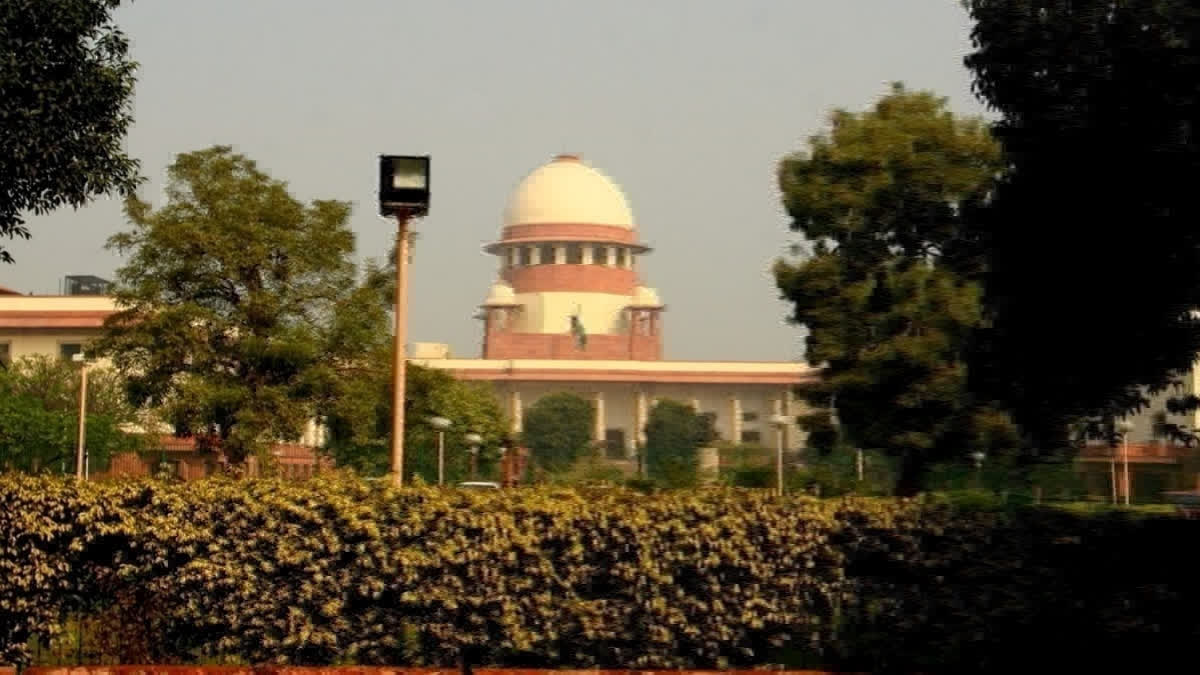New Delhi: In a relief to a former IPS officer, the Supreme Court on Friday quashed the proceedings against her under the Narcotic Drugs and Psychotropic Substances (NDPS) Act in Haryana, saying the special judge acted in a "predetermined manner".
A bench of Justices B R Gavai, P K Mishra and K V Viswanathan set aside an order, which was dictated and typed on May 30, 2008, by the special judge and was placed in a sealed cover, observing it reflected a "total non-application of mind".
The bench's verdict came on an appeal filed by the officer who challenged an October 14, 2010, order of the Punjab and Haryana High Court. The high court upheld the May 30, 2008 order of the special judge, Kurukshetra, who had placed the typed and dictated order relating to the proceedings initiated against the officer for the offence punishable under section 58 of the NDPS Act in a sealed cover to be delivered by the successor special judge.
Section 58 of the Act deals with punishment for vexatious entry, search, seizure or arrest. The apex court noted the special judge had heard the case at "lightning speed" even after his transfer and dictated the judgement and left the act of pronouncement to his successor judge.
"When we opened the sealed cover on October 24, 2024, and perused the order dated May 30, 2008, passed by the special judge, it became clear to us that the special judge had acted in a predetermined manner," said the bench.
It noted that on May 26, 2008, a transfer order was issued transferring the special judge from Kurukshetra to Panipat but the judicial officer again kept the matter for hearing from May 27 to May 30, 2008.
"However, on May 30, 2008, the special judge proceeded to dictate and type the order and kept the same in a sealed cover. It is thus clear that the special judge had given a complete go-bye to all the principles of natural justice," the bench said. It noted that appellant Bharti Arora was posted as the superintendent of police, Kurukshetra from May 21, 2004, to March 18, 2005.
In January 2005, acting on a tip off the police apprehended a man with opium weighing over 8 kg. Soon thereafter, the man filed an application claiming he was innocent and the opium was planted on him by others.
The bench noted that Arora took cognisance of the application and an inquiry was conducted. As per the inquiry report, the man was innocent and the opium was planted by three other persons. On February 22, 2007, the special judge convicted the man who was apprehended by the police and acquitted the other three persons.
In the verdict, the special judge said the story that the man was implicated by the trio was concocted by the senior police officials and therefore, they must show cause why proceedings under section 58 of the NDPS Act were not initiated against them.
The apex court noted that on February 26, 2007, the special judge issued a show cause notice to Arora under Section 58 of the Act and directed her to remain present before the court on March 15, 2007.
On May 30, 2008, the special judge placed the typed and dictated order in a sealed cover and adjourned the matter to June 4, 2008. Aggrieved by this order, the appellant moved the high court which upheld the special judge's order.
The high court further directed that the special court would open the sealed cover on October 27, 2010, and pronounce the order then and there and carry further proceedings as required by law.
The apex court noted it had stayed the operation of the high court's order on October 26, 2010. In its verdict, the apex court said the notice given by the special judge to the appellant and other police officers was for the alleged offence punishable under Sections 58(1) and (2) of the NDPS Act.
It said the proceedings initiated against the appellant were for the alleged offence punishable for which the maximum sentence provided was up to two years.
"It is thus clear that the special judge could not have conducted the proceedings against the present appellant for the offence punishable under Section 58 of the NDPS Act inasmuch as such proceedings could have been conducted only by a magistrate," the bench said.
It also referred to Section 69 of the NDPS Act which deals with protection of action taken in good faith.
"The special judge, without even giving notice to her, only on the basis of the arguments advanced at the stage of final hearing of the matter, made adverse observations against her by almost finding her guilty of the offence punishable under section 58 of the NDPS Act," the bench said, referring to the February 2007 order of the special judge.
While allowing the appeal, the bench quashed the high court's October 2010 verdict.
"The notice issued by the special judge dated February 26, 2007, to the appellant under Section 58 of the NDPS Act and all subsequent proceedings including the order dictated and typed on May 30, 2008 by the special judge shall stand quashed and set aside," it said.



